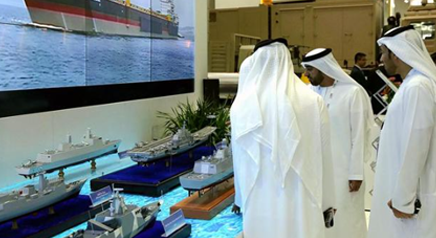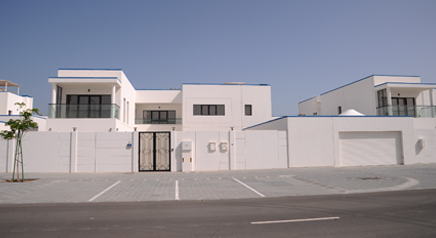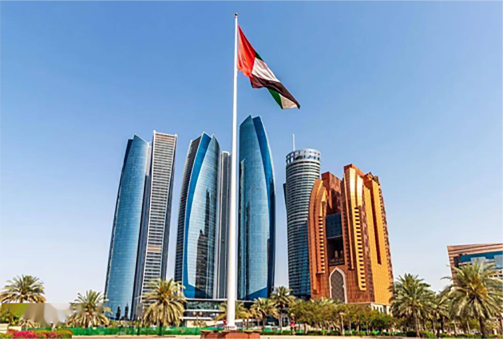















In the UAE commercial agency cooperation, establishing a long-term trust relationship is the core element of success, which requires a combination of cultural sensitivity, interest sharing and localization strategies. The following is a systematic solution:
1. The underlying logic of trust building
Relationships take precedence over transactions
The Arabic proverb "Al-'urūf" (relationship) is higher than the contract, and it takes 6-12 months to build trust through informal contacts. For example, a Chinese car company sponsored the Dubai International Air Show and had dinner with the agent family every week for 6 consecutive months, and finally obtained the exclusive agency rights.
Religious and cultural anchor
Actively participate in charity activities during Ramadan (such as donating materials to mosques) to show respect for Islam. Data shows that 78% of UAE businessmen believe that consistency in religious values is the basis for cooperation.
Family bond penetration
Establish "non-commercial" connections with agent family members, such as inviting their children to participate in Chinese summer camps, or sponsoring family weddings, to form emotional ties.
2. Six strategies for deepening the relationship
1. High-level interaction mechanism
Annual strategic dialogue
Every year, the CEO of the China headquarters and the chairman of the agent are arranged to hold closed-door meetings, with the topics focusing on long-term vision rather than short-term interests. A communications equipment company has extended the cooperation period from 3 years to 10 years through this model.
Royal circle penetration
With the help of Abu Dhabi royal family members as project consultants, their social capital is used to endorse the legitimacy of the cooperation. For example, a certain infrastructure project was supported by Sheikh Mohammed's office, and the land approval time was shortened to 45 days.
2. Localized team empowerment
Arab executives hold shares
Give the local team 20% of the equity, turning it from an "executor" to a "partner". After a certain home appliance brand implemented it, the agent reduced its inventory turnover rate from 120 days to 45 days.
Cross-cultural training system
Carry out Arabic etiquette training for the Chinese team (such as bowing instead of shaking hands), and educate local employees on Chinese business culture to reduce communication friction. 3. Benefit-sharing mechanism
Step-by-step commission design
After sales exceed AED 50 million, the commission rate will be increased from 15% to 22%, which will encourage agents to actively explore the market.
Risk-sharing agreement
When the product is unsalable, the Chinese side will bear 30% of the inventory loss to enhance the confidence of the agent.
4. Community integration plan
Corporate social responsibility (CSR) binding
Jointly invest in local education projects with agents, such as establishing a Sino-Arab bilingual school in Sharjah, to enhance the social recognition of the brand.
Cultural exchange platform
Sponsor the "Arab Culture Week" China tour, and invite agents to participate in Chinese intangible cultural heritage experience activities to strengthen cultural resonance.
5. Digital relationship management
Private social circle operation
Send customized holiday greetings (such as Spring Festival greeting cards made with Arabic calligraphy) to senior management of agents through WhatsApp to maintain high-frequency interaction.
Data transparency
Share real-time sales data dashboards and use Power BI to generate Arabic reports to show an open and cooperative attitude. 6. Crisis response mechanism
24-hour emergency contact
Appoint Chinese executives as "emergency affairs consultants" for the agent's family, such as assisting in handling non-commercial issues such as children's study abroad and family business financing.
Conflict mediation fund
Withdraw 3% of the contract amount as a special fund for informal mediation of disputes to avoid legal proceedings that damage the relationship.
3. Key risk avoidance
Religious taboo red line
Avoid using female images or alcohol elements in advertisements. A European fast-moving consumer product ignored this rule and caused the agent to terminate the cooperation.
Anti-bribery compliance
Strictly abide by the UAE Anti-Corruption Law. The value of gifts shall not exceed 500 dirhams and must be approved by the compliance department.
Inheritance risk management
It is stipulated in the agreement that if an inheritance dispute occurs in the agent's family, the Chinese side has the right to choose the heir who continues to cooperate or terminate the agreement.
IV. Relationship evaluation and iteration
Quarterly trust index monitoring
Quantify the relationship quality from five dimensions such as response speed, information transparency, and willingness to provide additional support. When the score is lower than 80, start the relationship repair plan.
Construction of alternative relationship network
Maintain moderate contact with the agent's competitors to form a "competition-cooperation" balance to prevent business interruption caused by the breakdown of a single relationship.
Case reference
Benchmark case: Huawei established a "Joint Innovation Center" with Etisalat to jointly develop 5G applications, while deeply participating in local community construction, and maintained the first market share for 12 consecutive years.
Warning case: A Chinese e-commerce platform directly fired poorly performing middle-level managers because it did not respect the decision-making process of the agent family, resulting in the complete termination of cooperation.
Summary: Establishing a commercial agency relationship in the UAE must follow the principle of "religion as the basis, family as the chain, and interests as the core", and through high-level emotional binding, localized system design and deep cultural integration, the cooperative relationship can be upgraded to a "community of shared destiny".
In the UAE business agency cooperation, decision delay is a common challenge, mainly due to the centralized decision-making of family businesses, the lengthy government approval process and the emphasis on "relationships first" in the culture. The following are targeted solutions:
Long decision-making chain in family businesses
Major decisions require collective discussion among core family members, which may involve disagreements among multiple generations.
Multiple levels of government approval
Matters involving industry access, land leasing, etc. need to be reported layer by layer, which takes an average of 3-6 months.
Cultural preference "relationship maturity"
Trust needs to be established through multiple informal contacts, and directly entering into contract negotiations can be seen as impatient.
1. Penetration of high-level relationships
Directly reach decision-makers
Through channels such as industry summits and royal foundations, strive to meet with the chairman of the agency company or the head of the family alone. For example, a Chinese infrastructure company invited a member of the UAE royal family to serve as a project consultant, and the decision-making cycle was shortened from 12 months to 4 months.
High-level endorsement strategy
The Chinese ambassador to the UAE or the president of the industry association will introduce the project to enhance the partner's attention to the project.
2. Release value in stages
"Mini cooperation" test waters
First start a small order or pilot project (such as a short-term agency for 3 months), and then expand cooperation after proving the competitiveness of the product with data. A home appliance brand quickly verified market demand through the temporary exhibition hall of the Dubai World Expo, accelerating the signing of a long-term agency agreement.
Visualization of key nodes
Make a bilingual progress board, mark the person in charge of nodes such as government approval and product certification and the expected completion time, so that the other party's senior management can track it.
3. Localization process optimization
Employ "desert lawyers"
Employ local lawyers who are familiar with the UAE's "Commercial Agency Law" and have close ties with the Ministry of Industry and Trade to predict approval obstacles in advance. For example, the lawyer team of a technology company discovered the lack of environmental certification materials in advance, avoiding 3 months of rework.
Establish a joint working group
Each of the agent and 1 senior + 2 executives form a special group, and make progress synchronously every week to reduce information transmission loss.
4. Informal communication breakthrough
Coffee meeting decision-making method
Arrange private coffee meetings before Ramadan or after religious festivals, and use the Arabs' preference for informal occasions to discuss important matters to promote decision-making.
Lubrication of third-party relationships
Pressure through local chamber of commerce members (such as the Abu Dhabi Chamber of Commerce) who have family ties with the agent, imply the intention of competitors to cooperate, and create a sense of urgency.
"Sunset Clause" Constraints
It is stipulated in the agreement that if the agent fails to complete a certain approval within 60 days, the Chinese party has the right to unilaterally terminate the agreement and reserve the right to pursue responsibility.
Milestone Payment Linkage
The payment of agency fees is tied to the progress of decision-making, for example: 30% after government approval, 40% after the product is put on the shelves.
Quick Arbitration of Disputes
Choose the Dubai International Arbitration Center (DIAC), whose average ruling period is 9 months, much faster than the 2-3 years of local courts in the UAE.
Flexible time management
During Ramadan, key negotiations were suspended and attention was shifted to internal process optimization.
Accept the reality of not working on weekends (Friday and Saturday) and arrange cross-border video conferences in advance.
Digital tool replacement
Send short videos to senior management of the agency through WhatsApp to intuitively display product testing results.
Use BOTIM (UAE version of WeChat) for encrypted communication to avoid lengthy email approval.
Multi-agent parallel strategy
Signed agents in Abu Dhabi, Dubai and Sharjah respectively, and used competitive pressure to force decision-making speed.
Government public relations advance
Applying for "priority project certification" to the Ministry of Economy 6 months in advance can shorten the approval time by 30%.
Force majeure clause
Specify that if the delay is caused by the internal decision of the agent, the Chinese side has the right to charge liquidated damages on a daily basis (usually 0.1% of the contract amount).
Case reference
Successful case: A new energy enterprise reached a "30-day decision commitment" directly with the board of directors of the agency company through the introduction of the UAE Vice President's Office, and simultaneously started the on-site office of the legal team, and finally completed all signings within 28 days.
Failure case: A clothing brand did not establish a relationship with the patriarch of the agency family in advance, resulting in the agreement being shelved for 11 months at the family meeting, missing the Ramadan sales peak season.
Summary: To solve the delay in decision-making of UAE commercial agents, it is necessary to balance cultural respect and process innovation, build a multi-dimensional acceleration system through high-level penetration, localized tools and contract constraints, and maintain flexible adaptation to religious cycles and family decision-making rhythms.
The hierarchical culture of the UAE has a profound impact on commercial agency cooperation, mainly reflected in the decision-making process, communication mode and maintenance of cooperative relationships. The following is a specific analysis and response suggestions:
Family businesses dominate decision-making
Most companies in the UAE are family-owned, and the core decision-making power is concentrated in the hands of family elders or founders. In agency cooperation, key terms (such as commission ratios and regional divisions) need to be communicated directly with senior management to avoid only connecting with middle-level or executive levels.
Case: A Chinese building materials company negotiated with the marketing manager of the agency for a long time without contacting core family members, which led to the final rejection of the agreement.
Government-level intervention
Agency cooperation involving public projects or sensitive industries (such as energy and real estate) may need to be approved by government departments. Under the hierarchical system, the attitude of senior officials directly affects the speed of project advancement.
Suggestion: Establish contact with relevant government departments as soon as possible through local partners or chambers of commerce.
Avoid communication across levels
The internal hierarchy of the agency is strict, and lower-level employees have no right to decide key matters without authorization. Contacting senior management directly may be seen as disrespectful to middle-level managers and cause resistance.
Strategy: First build trust through middle-level managers, then have them introduce you to senior management, and emphasize respect for hierarchy in communication.
Level differences in language and etiquette
For senior management, formal titles (such as "Sheikh" and "Your Excellency") should be used, and direct opposition should be avoided during communication. Instead, euphemistic suggestions (such as "Perhaps you can consider...") should be used.
Risk: If senior management is offended due to improper language or etiquette, the cooperation may break down.
Verbal commitments from senior management take precedence
Even if a written agreement has been signed, senior management may request changes to the terms due to personal preference or external pressure. Lower-level employees must obey the instructions of senior management, which puts the partner in a passive position.
Response: Make it clear in the agreement that "written terms cannot be changed due to verbal commitments" and confirm the legal effect through lawyers.
Low efficiency of grassroots execution
Under the hierarchical system, grassroots employees need to report layer by layer, resulting in lengthy document approval and payment processes. For example, payment of agency fees may take weeks or even months.
Solution: Appoint a dedicated person to connect with the senior assistant of the agency company to speed up the process.
Hierarchical protection of the mediation committee
Commercial agency disputes must first be submitted to the mediation committee, whose members are mostly senior local business or government figures who may tend to protect the interests of local agents.
Data: According to statistics from the Dubai Chamber of Commerce, about 70% of mediation results favor local companies.
High-level relationships affect the ruling
If the partner has a personal relationship or interest relationship with the committee members, it may affect the fairness of the ruling. Chinese companies need to exert pressure through high-level relationships or seek international arbitration.
Establish direct contact with senior management
Establish personal friendships with decision-makers of the agency through industry forums, diplomatic activities and other channels. For example, invite the other party to participate in Chinese cultural exchange activities to enhance trust.
Show strength in stages
Choose low-risk projects for initial cooperation, prove your ability to senior management through successful cases, and gradually strive for greater authority.
Localized team configuration
Employ Arab executives to be responsible for senior communication, and Chinese personnel focus on the execution level to balance cultural differences and professional capabilities.
Case reference
Successful case: A Chinese technology company met directly with the chairman of the agency through the introduction of a member of the UAE royal family, quickly finalized a 5-year cooperation agreement, and avoided legal proceedings through senior mediation in subsequent disputes.
Failure case: A clothing brand ignored the internal hierarchy of the agency and directly complained to the chairman about the service problems of the middle level, resulting in the termination of cooperation.
Summary: The hierarchical culture of the UAE requires Chinese companies to focus on senior relationships and respect hierarchical rules in agency cooperation, and balance cultural sensitivity and business goals through localization strategies.
When Chinese companies conduct commercial agency business in the UAE, they need to pay close attention to the impact of local cultural differences on cooperation. The following are cultural factors that need to be focused on and suggestions for coping:
The core position of Islam
Ramadan influence: During Ramadan (the ninth month of the Islamic calendar), fasting and drinking during the day, shortened working hours (usually 9 am to 2 pm), and a slower pace of business activities. Avoid scheduling large meetings or negotiations during Ramadan.
Religious taboos: It is forbidden to drink alcohol, eat pork, or mention sensitive religious topics in public. In agency cooperation, it is necessary to respect the prayer time (five times a day) and avoid scheduling conflicts.
Family and hierarchy concepts
Family business dominance: Many companies in the UAE are controlled by families, and decisions often rely on the consensus of core members. In cooperation, trust must be established with key family figures to avoid only connecting with grassroots employees.
Respect for authority: The decision-making hierarchy is clear, and avoid communicating across levels or questioning the authority of superiors.
High-context culture
Non-verbal communication: Be cautious when using body language (such as eye contact, handshake strength) and silence. Arabs are used to judging trust through long-term interactions, so avoid rushing for success in the initial cooperation.
Indirect expression: When rejecting a request, you may use euphemisms (such as "further research is needed"), and you need to interpret the true intention through the network of relationships.
Slow decision-making pace
Relationships take precedence over contracts: Agency cooperation requires the establishment of personal friendships first, which may be promoted through informal occasions such as coffee parties and dinners. Avoid discussing detailed terms at the first meeting.
Collective decision-making model: Major decisions require multi-party consultations, which may involve government departments or industry associations, and sufficient time must be reserved.
Restrictions on women's participation
Women have a low level of participation in traditional business fields. If the other party in the agency cooperation is male, female representatives should dress conservatively (cover their arms and legs) and avoid active handshakes or physical contact.
Exceptions: Women in free zones (such as Dubai International Financial Center) or the younger generation have more open roles and need to respond flexibly.
Social etiquette details
Greetings and titles: Greet with "Assalamu alaikum" (May peace be with you), and address the surname plus title (such as Mr. Ahmed).
Gift taboos: Avoid giving alcohol, pork products or items with animal images (such as dogs). Gold jewelry, perfume or handicrafts with Chinese characteristics are optional.
Flexible time management
"Arabic time" allows for flexible schedules, and meetings may be delayed or cancelled at short notice. Confirm in advance and be patient, and avoid rushing.
Weekend differences: The weekend in the UAE is Friday and Saturday, which is different from the international market, so work plans need to be adjusted.
Written agreements and verbal promises
Although the law requires written contracts, verbal promises are equally important in Arab culture. If the terms need to be changed, communicate in an informal setting and avoid directly modifying the written agreement.
Hire local consultants
Hire local employees or consultants who are familiar with the culture to help understand the unspoken rules (such as tribal relations and government approval processes).
Adapt to the social rhythm
Accept coffee culture: Arabic coffee (gahwa) is usually required before business meetings, and refusing may be considered impolite.
Participate in community activities: Enhance corporate image and cultural identity by sponsoring local charities and sports events.
Respect dress codes
Men should wear long-sleeved shirts and long pants, and women should wear headscarves (light-colored scarves are optional) to avoid revealing clothing.
Avoid cultural misunderstandings: For example, the "OK" gesture is considered offensive, or handing things with the left hand is considered impolite.
Conflict resolution methods: Disputes need to be mediated by a middleman, avoid publicly criticizing the other party, and maintain the "face" culture.
Digital communication notes: When communicating through instant tools such as WhatsApp, avoid sending messages during non-working hours (such as after 10 pm).
Summary: UAE culture emphasizes trust, respect and long-term relationships. Chinese companies need to incorporate cultural adaptation into their business strategies and establish sustainable agency cooperation through localized teams, patient communication and attention to details.
Share how the UAE's hierarchical culture affects commercial agency cooperation? How do Chinese companies deal with the slow decision-making process when engaging in commercial agency in the UAE? What are the cultural differences in communication methods in UAE commercial agency arrangements?

 Add WeChat
Add WeChat